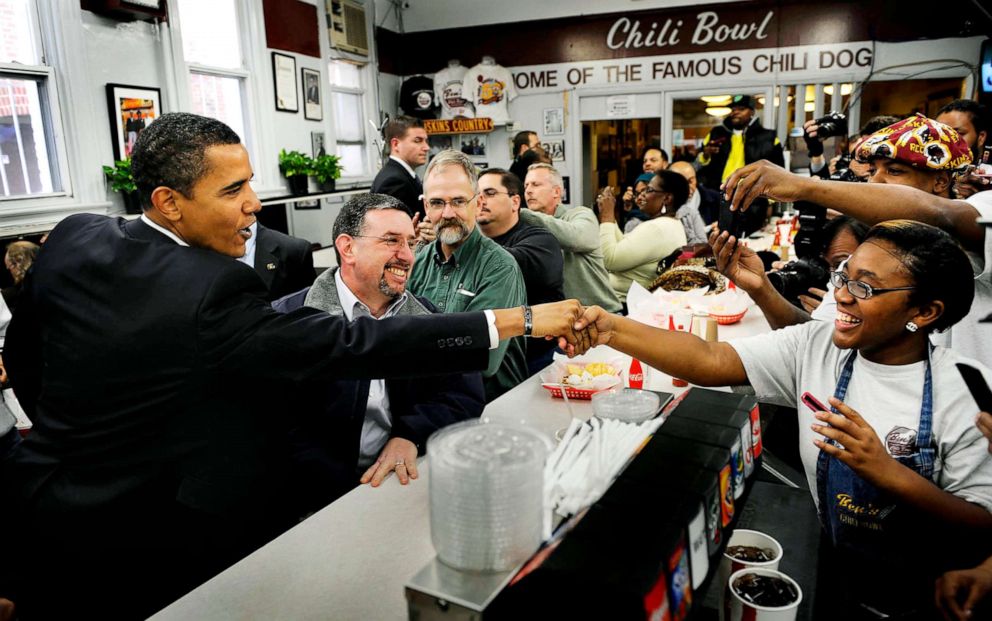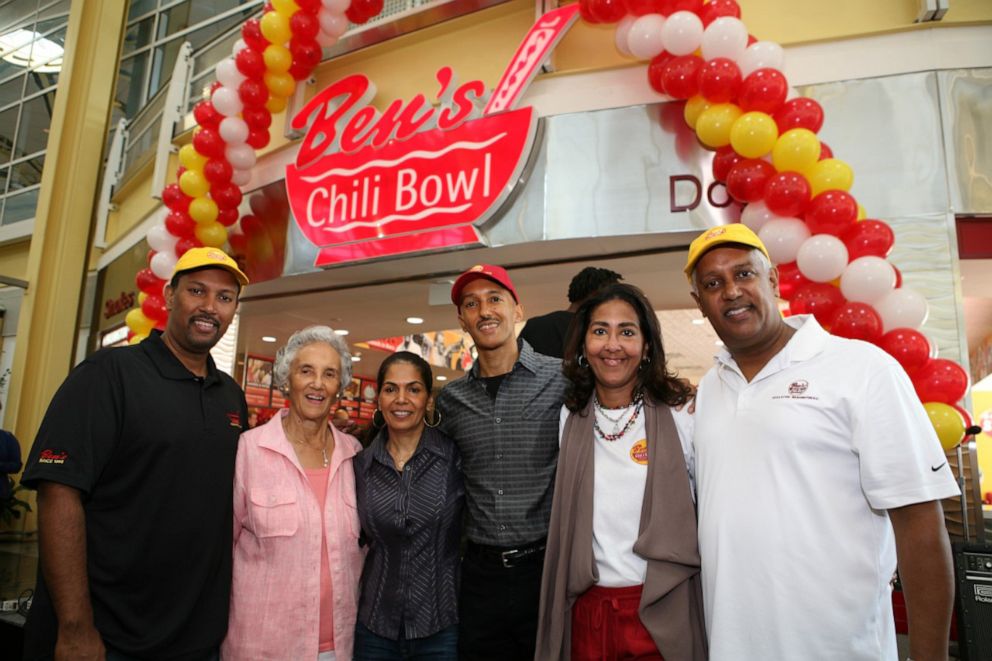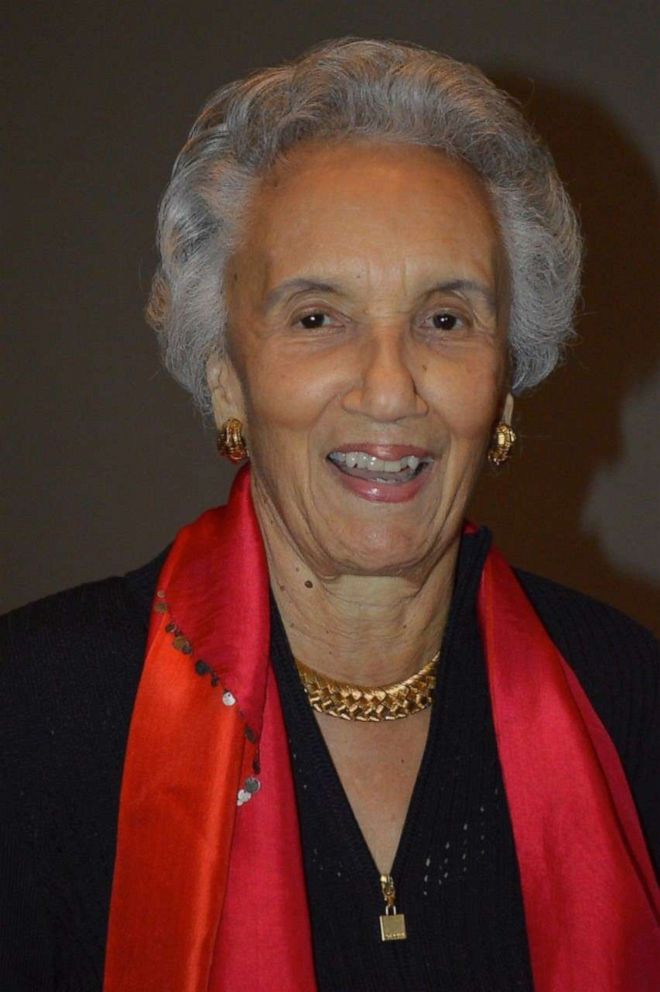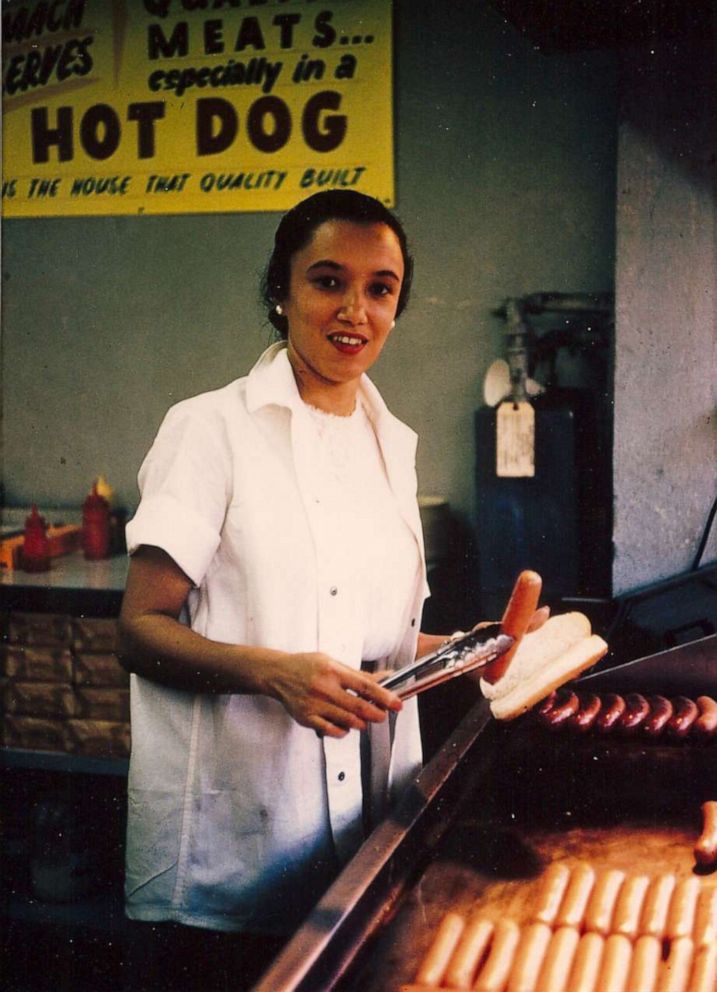Ben's Chili Bowl, iconic DC business, obtains critical federal loan
The family was hit hard by the coronavirus pandemic, afraid of losing business
After being shut out of the initial round of forgivable federal loans, the Ali family -- owners of the iconic Washington, D.C. diner, Ben's Chili Bowl -- got the news they'd been waiting weeks for, their emergency Paycheck Protection Program assistance had been approved.
"We have good news as opposed to bad news," Sage Ali recalled his banker telling him Monday night and confirming Tuesday afternoon. "Everything has gone through. Everything has been approved and accepted. We are now officially approved."
Sage could not wait to tell his mother, Virginia, the 86-year old matriarch and co-founder of the business who has been stuck at home since the novel coronavirus pandemic hit in February.
"I told Mom, and she was just so relieved and so happy," Sage said. "You could tell she would rest easier."
They’re waiting to see just how much of the loan is funded, but Sage said the family is elated.
The Ali family was determined to survive. They have survived so much already. Sage's parents, Ben and Virginia, lived through segregation and Jim Crow. Much of downtown Washington was off-limits to them in the past.
The Alis started Ben's Chili Bowl in the late 1950s, a tiny diner that would serve presidents and celebrities, and the pair made it through the 1968 riots after Martin Luther King, Jr. was assassinated and white flight to the suburbs brought the scourge of heroin and crack cocaine to their doorstep along with the rise in crime that would see the departure of most businesses.

But not the Alis. They stayed and persevered, expanded even -- to seven locations.
Then came the coronavirus which devastated the business.
And to add insult to injury, the family -- desperate for funding to keep their business afloat, watching 80% or more of their business evaporate -- was told they were shut out of the first round of PPP funding, their application was stuck in limbo , frozen while Republicans and Democrats fought over how best to spend taxpayer dollars on other rescue programs.
"I’ll be honest with you, it’s a little bit emotional. To tell Mom we didn't get that loan, it was hard, seeing her face," Sage Ali told ABC News in an interview, his voice halting. "Mom is 86 -- a very young, very sharp 86. She just stopped doing the books maybe a year ago, but she’s still into everything. Mom understands very well the financial situation right now, and she knew how critical that funding was. So for me to get off the phone and walk into that other room and say, 'Guys, it didn't go in,' that was a very tough moment for me."
'We haven’t seen anything like this'
Sage Ali, responsible for the banking side of the family business, applied for a PPP loan at his bank, Citi First of DC, a family-owned business, a factor important to the Alis.
"It took way too long to process. It seemed like they kept coming for more information over and over," Sage’s wife, Vida, said. "We were following the guidelines -- go to one bank at a time -- but we got left out. I was shocked when the money was out."

"We felt like they did their best," Sage said of the bank. "But this is unprecedented. This is a whole different level. The ‘68 riots were crazy, but we haven’t seen anything like this."
The restaurant which is down to one location -- its landmark U Street diner -- is being run by a skeleton crew, attempting to survive on its takeout business, which is just barely covering overhead, according to Sage, just making enough to cover payroll.
"The second it opens up again, we should be going right in," Sage said of the PPP program, meant to help businesses hire back their employees for two months. But for the Alis, there are many questions about how the path to reopening will work.
"You want to be confident. You want to be hopeful, but there are so many unknown factors. If we keep U Street," Vida said, stopping before adding defiantly, "U Street could never close. We’re telling Mom, We can’t close that location after everything you did to survive. Even if it’s down to five people. Whatever it takes."
A neighborhood mainstay
In 1958, Sage’s parents, Ben and Virginia Ali, opened Ben’s Chili Bowl in what was known then as Black Broadway -- the thriving cultural and economic hub of the African American community, a world that had produced such legendary figures as jazz great Duke Ellington and Madame Lillian Evanti, the first black international opera singer, as well as a number of leading intellectuals.
The Chili Bowl became a neighborhood mainstay, renowned for its burgers and famous half-smokes with spicy chili sauce, the latter now a D.C. signature dish.
What to know about Coronavirus:
- How it started and how to protect yourself: Coronavirus explained
- What to do if you have symptoms: Coronavirus symptoms
- Tracking the spread in the US and Worldwide: Coronavirus map
Virginia recalls folks in town for the March on Washington dining in their U Street diner.
In April 1968, the Reverend Dr. Martin Luther King, Jr. was assassinated, and the riots in Washington that followed were devastating for the city, along with drugs and white flight to the suburbs. Still, Ben and Virginia Ali were determined to keep their business on U Street up and running.

"I was eight years old when we got the news that Martin Luther King was killed. I was in the car with my dad. We were allowed to stay open to serve first responders, and I remember we really feared for his life going in there. I remember as an eight-year-old kid seeing an Army tank on the road," recounted Sage.
In later years, the city's development of a metro line nearby nearly starve'd Ben's of business and almost shuttered their business.
"We were this close to closing everything down," said Kamal Ali, Sage's older brother, holding his index and thumb just millimeters apart.
In 2005, after Ben Ali passed away, Sage and Vida Ali returned from California to help their mother and two brothers, Kamal and Nizam, run the business. Virginia Ali was determined to soldier on, and the business thrived, with scores of tourists flooding into the tiny restaurant to take in more than just the food. President Obama showed up on more than one occasion. Celebrities frequented the establishment.
'A safe zone'
"The Chili Bowl was always the gathering place for the community and for folks all over the world. Mom was always there welcoming everyone in," recalled Sage. "And the diversity has always been there, even when it wasn’t happening outside the door. People have told me, coming off the street, you might have felt unsafe, but you walked into the Chili Bowl and they were safe. It was a safe zone where they could talk about anything. It was like sitting around with family. You can argue, but you’re still family."
But Virginia Ali was forced to stop going to her beloved restaurant in February when it was clear that the coronavirus was an existential threat.
"She stopped going when the COVID 19 hit. Mom’s such a social person. She loves people. Embraces everyone as family. So for her, it was just almost unthinkable. Now, she’s cooped up in a house by herself," said Sage. "She would love nothing more than to go down there right now. Mom would put on a mask and go down there right now and be there all day. In fact, she tried, but we all had to tell her she could not be there. She wasn’t happy about that."
Even if the family gets its PPP loan, like many restaurant owners they will be grateful for the help but they are certain it will not be enough.
"We’ve purchased food, paper products, and to be honest, we're not able to pay now. We have relationships with vendors so they know we’re good for it, but they need their money, too," Sage said. "We all have lots of expenses, and when your revenue drops at such a high level, that’s a big deal."
PPP gives small businesses a loan based on annual payroll expenses and demands, with few exceptions, that owners hire back employees for two months in order for the loan to be forgiven. The question for restaurants is, What happens when customers, who might still be afraid to return en masse or might still be under social distancing guidelines, fail to return in large numbers?
One grassroots industry group, formed to lobby for its own interests in the wake of the pandemic, has been pushing Congress to extend the originating date of the loan to accommodate the uncertainty of the restaurant business right now. The Independent Restaurant Coalition also wants to extend the expiration date of the Paycheck Protection Program, now set for June 30, 2020, and it is pushing for a separate economic rescue package from Congress in any future stimulus language with one member estimating the value at about $1 trillion.

'We're not so freaked out as we are focused'
But for the Alis, it’s all just a juggling act for now.
"It’s really, really tough. This may give us relief for two months, but then what?"Vida asked. "You have every other bill, mortgage, rent -- and what do we do about vendors? No one is saying they’re going to relieve us of that. They’re saying maybe no late fees."
"Everyone is talking about bringing our customers back, but the fact that they are afraid to come in and understandably so, there are so many challenges," said Sage. "Restaurants don't even know, with the social distancing, what will that mean for a sit-down restaurant? There are so many things that we just don't know."
"I’m not going to say it doesn't’ work, because any help we can get will help. But we need more," added Sage.
Still, with their PPP loan nearly in hand, the family - Sage says - is determined, it will beat the pandemic which has already shuttered scores of small businesses.
"We’ve got to ride it out. We know we’re going to work things out somehow," Sage said. "We know that we’re going to be OK."
The family -- aware that they are lucky to have gotten through -- is determined to extend a helping hand to others in the wake of an outpouring of support for the beloved business.
The media focus on the business' plight brought "an incredible outpouring of love and support and people contacting us offering support. People were saying, 'Ben’s Chili Bowl cannot go away, so what can we do for you?,'" Sage recounted, saying one person even purchased a gift card for $500 just for the Ali family.
The family was stunned when Sen. Kamala Harris, D-Calif. tweeted her support, writing, "@benschilibowl is a DC icon I used to eat at during my @HowardU days. It's outrageous small businesses like Ben's Chili Bowl aren't getting the kind of relief the president's friends are getting. Congress must prioritize helping minority-owned businesses."https://twitter.com/KamalaHarris/status/1253447637367492608?s=20
"We were shocked," Sage said. "We were behind the counter working, so we didn’t know what was happening. We were deeply touched by all of the love from everyone, but we didn’t want to just take money from people. Everyone is struggling. So we decided as a family - if anyone wants to support us by buying a gift card, we would help first responders, hospitals workers. We decided we’re going to provide meals with those funds. It’s a win for everybody."
Last week, the Alis fed 100 hospital workers, 50 police officers, 50 firefighters, and seniors at an elderly care facility. More of the same is scheduled, even with their PPP loan in hand.
"It’s great, because it’s not going to stop. We’ve always done this, but now we can do it in a bigger way," said Sage who is determined along with the entire family to reach a hand out to help other hard-hit small businesses who have not yet received a life-line loan from the federal government.



